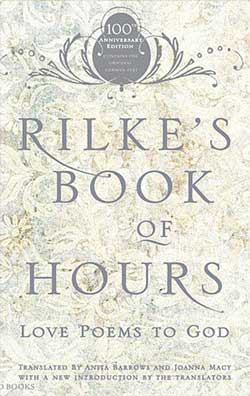
Divine love affair
Published by: Knopf
ISBN: 978-0385349949
Pages: 166
Price: INR 800
“The Poets have scattered you.
A storm ripped through their stammering
I want to gather you up again
In a vessel that makes you glad
…
The Blind man needed you as a cup
The servant concealed you
The homeless one held you out as I passed
You see, I like to look for these things.”
What do you do when a man writes poetry like this? Well, you read it until the tears course down your cheeks and wet the pages. Such is the poetry of Rainer Maria Rilke, the Mystic German poet, who lived and worked in the early part of the 20th century.
In the Book of Hours, Rilke brings the God of heaven down to earth and makes him share a ‘new kind of intimacy’ with people: God needs us as much as we need him. Written with an emotional urgency and a psalm-like directness, Rilke wrote the poems that made up this book of three parts in three intense periods of inspiration between 1899 and 1903.
In the first part called The Book of Monastic Life, Rilke has intensely inward conversations with God; he yearns for him with passion—such passion that he saw HIM in things no ordinary mortal would.
Having once seen him, he saw him again and again and again—in the acorns that fell from trees, in the leaping squirrels, in the rushing streams and the whispering winds; as his neighbour who thirsted for water and as the depth of his own being. Now, neither he nor God could let go of each other; and through the rest of this part they are both trembling with love at each other’s thresholds.
You must remember that all these lines were written in German [and that this is a translation], but even with that can’t you feel the two lovers whispering their hearts out to each other? It’s because Rilke let the love consume him and speak in nakedly simple language.
Right through the end, Rilke doesn’t lose his conviction in the human capacity to redeem an insane world through love, and this book is not just an affirmation of that but a pilgrimage to God.

